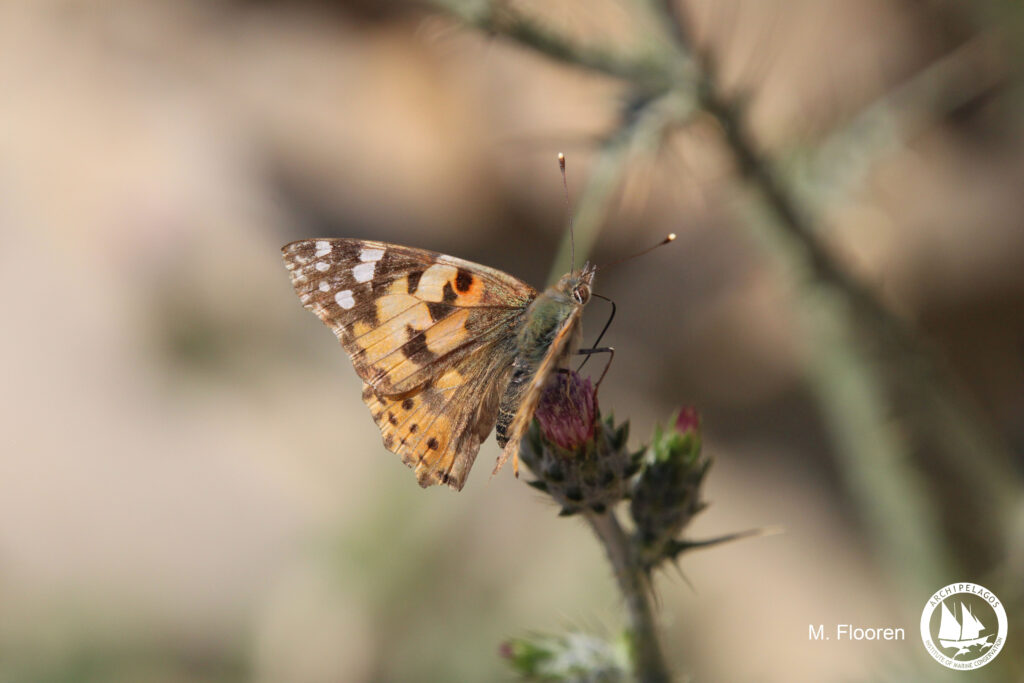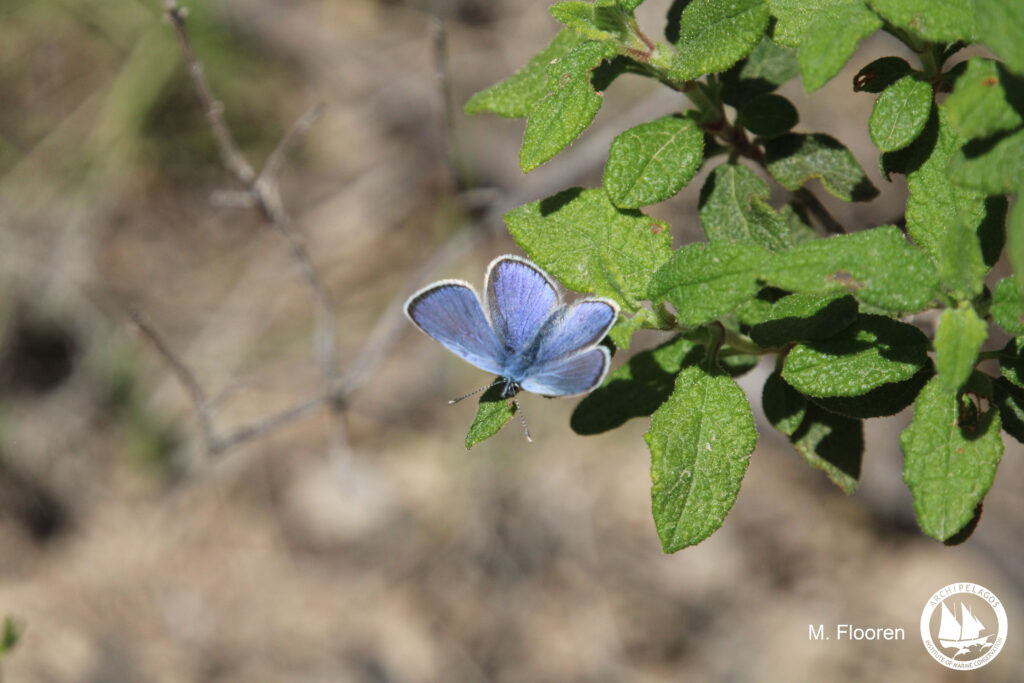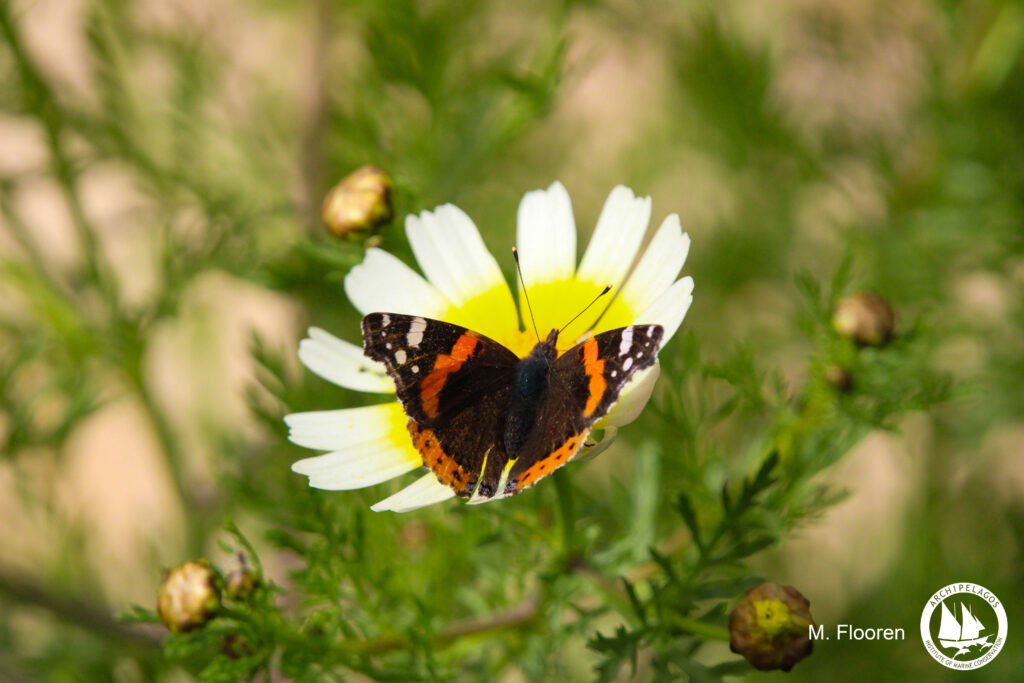My name is Lieza and I am currently in the final year of my studies in Agro – and Biotechnology, specialising in Plant Management. All the way from Belgium, I joined the Terrestrial Research and Conservation at Archipelagos on the island of Lipsi from mid-February until mid-May 2022.
My project was to assess the butterfly biodiversity in Lipsi during spring. A former intern had started this project a year before and I wanted to continue it because butterflies have not been studied very thoroughly in this island of the Aegean.

Butterflies are considered to be good indicators of environmental health since they react very quickly and sensitively to changes in habitat and climate. Since biodiversity is declining worldwide, and especially many insect species, butterflies could be used for biodiversity management as they are environmental indicators. Both urbanisation and intensification of agriculture pose an imminent threat to biodiversity, which is why I chose to assess the butterfly diversity in three different habitat types: urban green spaces, rural habitats and agricultural habitats. Both urban and agricultural areas are very prominent across the globe, which is why they can play an important role in maintaining and promoting biodiversity if managed well.

To record the butterfly diversity, I walked virtual W/M shaped Pollard transects or point counts, the latter being a modified form of the first for sites where walking is not recommended such as steep hills. Instead of walking the W or M, I stopped at fixed points to count and identify the present butterflies. I also recorded and described the vegetation since butterflies have a co-evolutionary relationship with many plant species for laying eggs or feeding, which directly leads to pollination. I surveyed every site three times and will use the data to analyse the species richness, abundance and evenness between the habitat types. Surprisingly, I can already see a greater species richness in urban green spaces which underlines the importance of green vegetation in urbanized areas to promote biodiversity.

Thanks to this internship I learnt to be more independent and confident. It also gave me the possibility to develop my knowledge on butterflies and Mediterranean vegetation and, more generally, my understanding of ecology and its importance.
Lieza Krsteski, Terrestrial Research Intern, University of Applied Sciences Ghent, Agro- and biotechnology – Plantmanagement, Belgium

